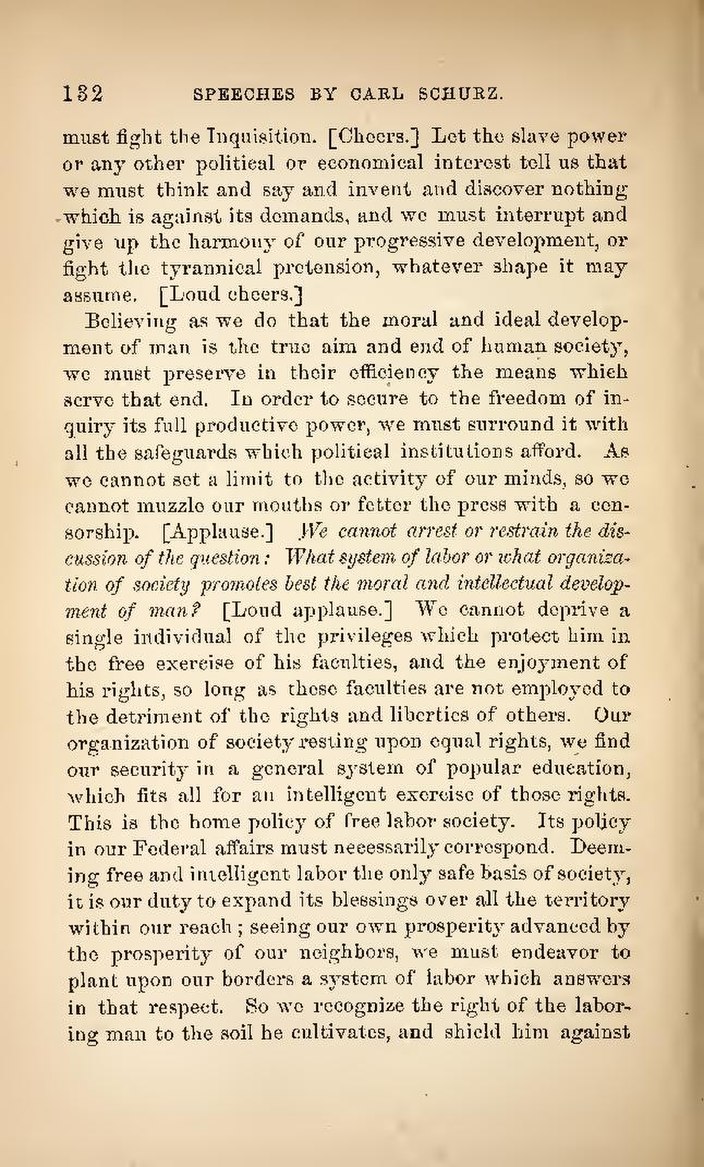must fight the Inquisition. [Cheers.] Let the slave power or any other political or economical interest tell us that we must think and say and invent and discover nothing which is against its demands, and we must interrupt and give up the harmony of our progressive development, or fight the tyrannical pretension, whatever shape it may assume. [Loud cheers.]
Believing, as we do, that the moral and ideal development of man is the true aim and end of human society, we must preserve in their efficiency the means which serve that end. In order to secure to the freedom of inquiry its full productive power, we must surround it with all the safeguards which political institutions afford. As we cannot set a limit to the activity of our minds, so we cannot muzzle our mouths or fetter the press with a censorship. [Applause.] We cannot arrest or restrain the discussion of the question: What system of labor or what organization of society promotes best the moral and intellectual development of man? [Loud applause.] We cannot deprive a single individual of the privileges which protect him in the free exercise of his faculties, and the enjoyment of his rights, so long as these faculties are not employed to the detriment of the rights and liberties of others. Our organization of society resting upon equal rights, we find our security in a general system of popular education, which fits all for an intelligent exercise of those rights. This is the home policy of free labor society. Its policy in our Federal affairs must necessarily correspond. Deeming free and intelligent labor the only safe basis of society, it is our duty to expand its blessings over all the territory within our reach; seeing our own prosperity advanced by the prosperity of our neighbors, we must endeavor to plant upon our borders a system of labor which answers in that respect. So we recognize the right of the laboring man to the soil he cultivates, and shield him against
